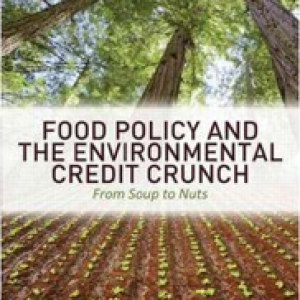This book discusses the implications of the financial credit crunch for consumers and food spending. The authors argue that the credit crunch is having an impact not only on short term food prices but also on the sustainability of the food system. The economic changes we experience now are said to have a bearing on our ability to manage the environmental credit crunch that looms. The authors conclude that a significant and positive difference could be made by changing some of the ways in which we procure, prepare, and consume our food.
Written by an economist (Julie Hudson) and an investment professional (Paul Donovan), this book addresses the economic and environmental implications of how we treat food. It examines each aspect of the food chain, from agriculture, to production and processing, retail, preparation, consumption and waste.
Overview of content
1. Overview: The Great Food Crunch
2. Raw Material Inputs: Mineral
3. Raw Material Inputs: Vegetable
4. Raw Material Inputs: Animal
5. Food Processing
6. Transport
7. Food Wholesaling and Retailing
8. Eating Food
9. Human Health and Food
10. Food Waste
11. Conclusion
Citation
J. Hudson, P. Donovan , 2013, Food Policy and the Environmental Credit Crunch: From Soup to Nuts, Ruthledge.
Read more and order on the Routhledge website, you can also order it as an e-book, click the links and Find on Amazon Kindle, Find on Apple iBookStore.








Post a new comment »